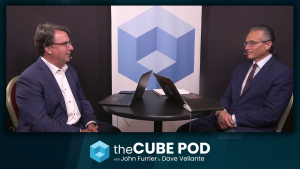Entrepreneurs and Startups: Ron Conway Explained – By Ben Horowitz
Almost everybody knows that Ron Conway has invested in a huge percentage of the top technology companies in the world, but entrepreneurs often ask me why Ron would be a good investor for them. When I talk to venture capitalists, they know that Ron is important, but they seldom know why. Gary Rivlin, despite writing an entire book on Ron, completely failed to understand what Ron does (which is why the book is so bad and not worth reading). Speaking as an entrepreneur, if I were to start a firm today and could only have one investor, it would be Ron Conway. This post explains why.
Before doing so, I need to make some important disclosures. Ron is an investor in Andreessen Horowitz. I am an investor in Ron’s new fund. Ron has made significant donations to my favorite charity (Via Rehabilitation Services). I have made significant donations to Ron’s favorite charity (UCSF Medical). Ron’s son Ronny works for Andreessen Horowitz. Ron was an investor in Loudcloud/Opsware (the company that I founded). Ron and Andreessen Horowitz have co-invested in many companies and we plan to co-invest in many more.
OK, now that that’s out of the way, let’s get down to business. People often misunderstand Ron, because he is not like other Angels or Venture Capitalists. Comparing him to Reid Hoffman or Roelof Botha is like comparing an apple to a basketball.
Ron’s Network
Ron runs a network. In Ron’s network, the nodes are important business people and Ron governs and routes the calls. In order to place a call on the network, you must meet certain important requirements:
- You must have a relationship with Ron. Note that I say “relationship” as different than “have met” or “know.” More on this distinction later.
- You must answer when called. Ron ensures extremely high reliability in his network by requiring all nodes to participate if called upon.
- You must be in good standing with Ron.Taking an investment from Ron is the simplest way to establish a relationship and qualify to make calls on the most important business network in technology.
So, how does this work? The other day my friend David Weiden and I were discussing this, and he told a fantastic story that perfectly illustrates the value of Ron’s network:
My perspective on angel and VC investors is shaped by my own experiences as an entrepreneur on the firing line trying to get revenue in the door at a startup called Tellme after the dot com bust.
A particularly memorable moment was one night I was in the office at 11pm with our then director of finance, Alfred Lin (now COO of Zappos).
We were at wit’s end because we had just lost our biggest customer opportunity which was with a large US telecom company. Normally “losing” didn’t phase us as we even developed a motto: “losing is just a step on the path toward winning.” But this time, we were really in trouble because the customer was signing a long-term contract with our competitor later that week. We had already appealed to the President of the division; the only further escalation points were to the CEO or Chairman. We had already tapped out our VC contacts. If we lost this customer, as Alfred dryly pointed out, it was unlikely we’d be able to get our revenue over our fixed costs in any reasonable timeframe. I asked Alfred what about any of our angel investors, so we went through them and none seemed likely to be able to pull this off.
Alfred said, “Well there is this one other investor, Ron Conway.” I didn’t know Ron at the time, and his investment was quite small. But we had nothing to lose by reaching out. So sometime after 11pm, I wrote Ron and essentially said: “hello, you don’t know me, I’m an executive at a company you’re an investor in, and we need a meeting—in person—with the CEO himself of this Fortune 50 company—this week—and if you can’t make this happen, hey that’s ok, but we may be going down—sorry.” Ron wrote back in literally 2 minutes and said, in what I have learned is Ron’s distinctive email style (immediate, short, all caps), “AM ON IT.” The next morning, Ron had done it. Tellme went on to win an eight figure contract that led to a nine figure contract. That’s a lot o’ money from a desperate email from someone he’d never met at 11pm.
Tellme was eventually acquired by Microsoft for about $800mm. My view of building startups is that it is somewhere between impossible and almost impossible, so you want all the help you can get. Tellme’s VCs (The Barksdale Group, Benchmark and Kleiner Perkins) were also extremely helpful, and I don’t think Tellme could have succeeded without them, including help with customer connections. But my personal opinion is that I’m not sure we would have made it without Ron either.
Why Ron is Unique
Now that we understand Ron’s value, a good question is why don’t more people run a network like Ron? Why is Ron unique? In my view there are four key ingredients to Ron’s business:
- A ridonkulous work ethic—If Ron’s awake, he’s working. He can be at a party, in his pajamas, or at the Super Bowl. Ron is always on the job and the network is always on.
- Pure motives—Ron does what he does, because he likes helping people succeed in business. He gives most of the money that he earns away to charity, so greed never clouds his vision or his mission. In fact, the investment component is almost an aside to his primary purpose.
- Super human courage—Ron fears no man and he definitely fears no phone call. When you ask Ron for help, you don’t have to wait a week while he warms up a connection. Ron’s network is always on.
- A way of doing business—This is the unspoken key to Ron’s success. He’s not judgmental in the conventional sense, but he acts with extreme prejudice when it comes to the proper way to conduct oneself in a relationship. If you behave below Ron’s standards in this respect, you will not be allowed to participate. As a result, Ron’s social network is a fantastic place to conduct business. Everyone is courteous, timely, and straightforward. Ron gets rid of the friction and enables his business partners to focus on what’s important.
So, the next time somebody asks you: “why should I try to get an investment from Ron Conway?”, let them know that (as The Game would put it) “if they are slipping in Silicon Valley and they get their deal snatched…”
{Editors Note: This post was published with the permission of Ben Horowitz from his personal blog where he writes about entrepreneurship and startups. I’ve found Ben’s views to be very cutting edge and relevant and very SiliconANGLE worthy. Enjoy the content reposted here from Ben’s blog.
Ben is the cofounder and General Partner (along with Marc Andreessen) of the venture capital firm Andreessen Horowitz based in Menlo Park. Prior to Andreessen Horowitz, Marc and I co-founded Loudcloud, a managed services provider (today, we’d call it a cloud service provider, but people were not quite ready for that in the early 2000s) which became Opsware, an data center automation software provider. You can follow me on Twitter @bhorowitz. You can also get updates on my venture capital firm @a16z.}
A message from John Furrier, co-founder of SiliconANGLE:
Your vote of support is important to us and it helps us keep the content FREE.
One click below supports our mission to provide free, deep, and relevant content.
Join our community on YouTube
Join the community that includes more than 15,000 #CubeAlumni experts, including Amazon.com CEO Andy Jassy, Dell Technologies founder and CEO Michael Dell, Intel CEO Pat Gelsinger, and many more luminaries and experts.
THANK YOU









